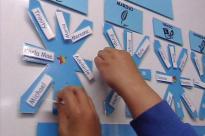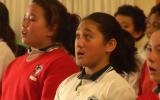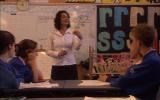Section navigation
Filter by result
Getting Started

The resources you’ll find on this page feature schools discussing their responses to the challenge set by Ka Hikitia - Managing for Success: The Māori Education Strategy 2008 - 2012. Ka Hikitia challenged all schools to ensure their Māori learners were acheiving education success as Māori.
These resources focus on where schools were at when they started, how they identified issues, and how they made a start to address these issues.
Background
The strategic intent of Ka Hikitia - Managing for Success: The Māori Education Strategy 2008 - 2012 is ‘Māori enjoying education success as Māori’. This recognises the widespread aspirations of Māori to live and succeed as Māori in te Ao Māori, in Aotearoa New Zealand society and in the wider world.
The Education Review Offices’ June 2010 review, Promoting Success for Maori Students: Schools’ Progress focuses on three critical dimensions for success: presence (being at school), engagement (engaging with learning), and achievement. The review concluded that in order to promote success for Māori learners schools need to:
- monitor and respond to trends in Māori student attendance and achievement
- adopt effective classroom and school-wide practices for assessment, analysis of student achievement information, target setting and evaluation of initiatives
- improve relationships with whānau so that home and school can work in partnership to improve learning
- build better relationships with Māori students, to help raise the expectations for achievement while also recognising the importance of te ao Māori
- maintain good classroom teaching and appropriate pedagogy.
-
Living the principle: Rotorua Boys High
 27/05/2011
27/05/2011
Filed under: Productive partnerships | Identity Language and Culture | Te Reo Maori | Effective leaders
This story from Rotorua Boys’ High emphasises the inseparable nature of reo and tikanga (language and culture), an integral part of the school’s programme.
-
Filed under: Identity Language and Culture | Te Reo Maori | Effective leaders
This story relays how Chisnallwood staff and students worked together, as part of their school review, to implement the New Zealand Curriculum, so that it would make a difference for Māori students and help them to succeed.
-
Filed under: Productive partnerships | Effective leaders
Responding to “demanding constituents” has been the catalyst for changes in teaching practice at Henderson Intermediate - changes achieved through a process of reflecting upon the evidence available and responding to student need.
-
Te Kauhua: Action research
 28/06/2011
28/06/2011
Filed under: Effective leaders
The action research approach that was adopted at Henderson Intermediate ensured adoption of the outcomes by staff and built confidence in their ability to find their own solutions for issues.
-
Whānau involvement at Hiruharama School
 28/06/2011
28/06/2011
Filed under: Productive partnerships | Effective leaders
Whānau and community involvement in school life can and should extend beyond supporting the school at cultural and sporting activities, and lead to engagement which directly supports students’ learning. At Hiruharama School, whānau are engaged at every level including strategic planning. (Extract from ‘Te Mana Kōrero: Relationships for Learning’, 2007).
-
Te Mana Kōrero: Culture counts 1
 28/06/2011
28/06/2011
Filed under: Identity Language and Culture | Ako | Effective teachers
Research shows that bringing cultural context into the curriculum affirms the students identity, and validates their cultural knowledge and knowledge of their whānau. (Extract from ‘Te ManaKōrero: Relationships for Learning’, 2007).
-
What makes a really good teacher?
 14/03/2012
14/03/2012
Filed under: Ako | Effective teachers
Students and teachers reflect on the qualities of a teacher that makes a difference. (Extract from ‘Te ManaKōrero: Teachers making a difference’, 2002) .
-
Taihape Area School: What has worked 18/05/2011
Filed under: Productive partnerships | Identity Language and Culture | Effective leaders
This clip shows what Taihape Area School has done to create links between the school and its community, to establish a partnership, thereby giving effect to the requirements in TheNew Zealand Curriculum to accommodate local needs and consult with the community.











